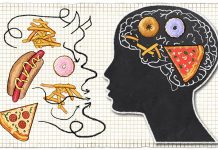It may not sound like that makes any sense, but the quantity and quality of your sleep has a huge impact on your waistline. Getting insufficient sleep may actually be the main reason you’re struggling to lose weight. This is especially true if you aren’t getting the right type of sleep. But don’t worry; after you’re done reading this, you’ll know all there is to know about sleep and weight loss – and how to use it for your advantage!
The Complex Connection Between Sleep and Weight Gain
The human metabolism is a very complicated machine. If you want to lose weight, you need to burn enough energy to force your body to delve into its fat stores and you need to make sure you eat a reasonable amount of nutrient-dense calories. But when you don’t get enough sleep, all of that goes out the window.
There are two very unfortunate things which happen to your metabolism when you don’t get enough sleep. The first thing that happens is that you release more cortisol the next evening, when your cortisol levels would normally be going down in order to prepare the body for sleep. When you’re releasing too much cortisol – especially in the evening hours – it can take longer to fall asleep, cutting your total sleep time short if you have to wake up at the same time each day. When you don’t sleep enough, your liver and your peripheral nervous system become less sensitive to insulin. This makes it much harder to burn fat and much easier to store sugar as fat, and can even lead to type 2 diabetes if you aren’t careful.
Sometimes, when you aren’t taking care of yourself, the brain gets its wires crossed and tries to compensate for your unhealthy behaviors in odd ways. A good example of this is what happens to your metabolic hormones when you are sleep-deprived. Leptin is the hormone that makes you feel full; ghrelin makes you feel hungry. When you don’t get enough sleep and your body is low on energy, it compensates by trying to get energy from food instead. So your body jacks up your ghrelin levels and shuts off the flow of leptin. This will make you more hungry and also cause you to crave unhealthy, high-calorie foods much more intensely. Most people feel bad and guilty when their willpower fails them and they cheat on their diet. But it’s not a moral failing or a form of weakness – it’s most likely just a lack of sleep!
Weight Loss and Good Sleep

When you get enough sleep, you get more of a specific type of sleep called REM sleep which is essential for brain health. REM sleep is the only time during the night that your body can repair and refresh your prefrontal cortex. This is the region of the brain responsible impulse control and decision-making. So not only will more REM sleep calm down your food cravings by balancing ghrelin and leptin, it’ll give you more willpower to make smart and healthy food choices.
Getting more sleep helps in another way that most people don’t recognize: it helps with fasting. Have you ever woken up after a good, long night’s sleep and experienced a sudden boost of energy? Part of that energy boost comes from the fact that your body spent a longer amount of time fasting between dinner and its next meal. When the body goes long enough without food, the brain ramps up your metabolism and your energy levels in order to give itself the kick in the butt it needs to get out there and go find food. If you like to exercise in the morning, this is especially helpful because you’ll be able to push harder during your workout and you’ll have better endurance – burning more calories and building more muscle in the process! But even if you don’t like to work out in the morning, you’ll still get that beneficial energy boost from having slept soundly the night before.
We know it’s not always easy to get to sleep your body needs. But if you’re overweight, it’s essential that you make your sleep a top priority. Without it, you’re practically helpless when it comes to unhealthy food cravings, skipping the gym, and feeling tired and hungry all the time. But when you prioritize your sleep, it’ll be much easier to get to the gym, eat fewer calories, and make smarter food choices at mealtime.






















































